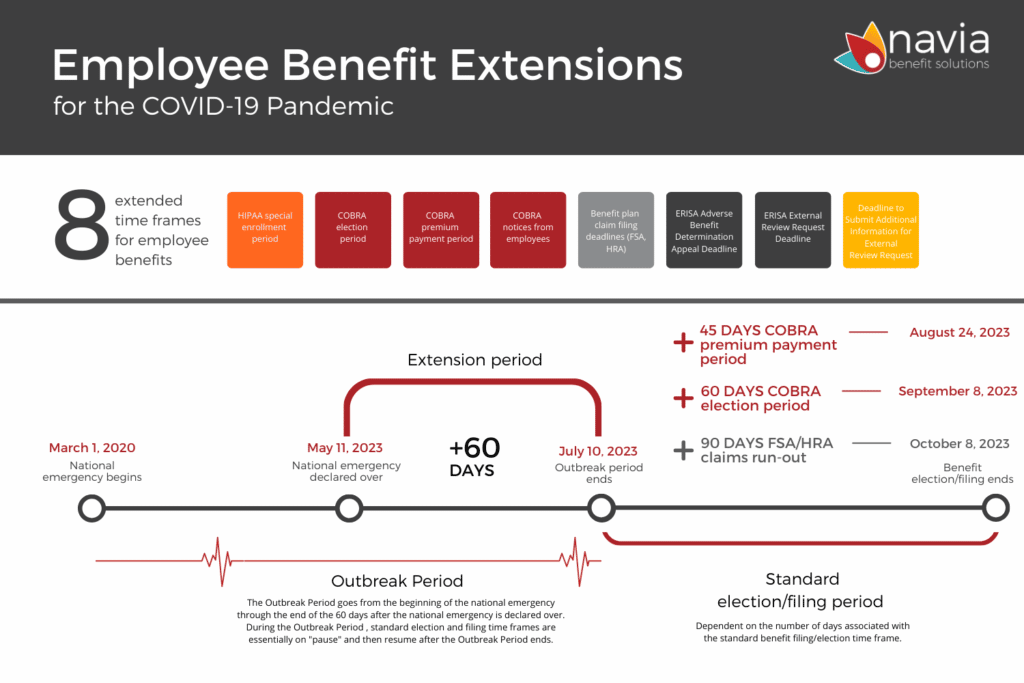The White House announced its plan to end both the national and the public health emergencies on May 11, 2023, which will affect health and welfare extended COVID-19 deadlines.
In early 2020, President Trump declared a public health and a national emergency in response to the COVID-19 pandemic. The public health emergency has been extended multiple times and expires next on April 11, 2023. The national emergency has also been extended several times, and expires next on March 1, 2023. The Biden administration plans to extend both emergencies to May 11, 2023, and then end both emergencies on that date. On February 1, the House of Representatives also passed a resolution that would end the national emergency immediately upon enactment; however, it may not pass in the Senate. For purposes of this article, let’s assume the White House announcement will prevail.
Because of the COVID-19 national emergency beginning in March 2020, individuals were generally allowed an additional year to meet certain health and welfare deadlines. Specifically, for purposes of determining certain benefit deadlines, periods disregarded (the “Outbreak Period”) are from March 1, 2020, until the earlier of (1) one year from the date the individual was first eligible for relief, or (2) 60 days after the announced end of the national emergency. If the national emergency ends on May 11, 2023, 60 days after this date is July 10, 2023, the end of the Outbreak Period.
The deadlines are determined on an individual basis in most situations. During a transition period, the affected deadlines must continue to be calculated for each individual and their circumstances. See below infographic if the national emergency ends as planned.
The Outbreak Period relief impacts the following deadlines:
- COBRA time frames for election and payment deadlines
- Qualifying event notification time frames for divorce, legal separation, child aging out, or disability
- HIPAA special enrollment time frames for birth, adoption, marriage, or loss of health coverage of employee/dependent, or termination or eligibility for premium assistance under Medicaid/CHIP
- Claims submission time frames for health Flexible Spending Accounts, Health Reimbursement Arrangements, and other ERISA benefit plans
- Appeals and external review process time frames (and perfecting a request for external review)
Employers and service providers must assess the new deadlines and plan accordingly. Administrative systems and forms will need to be revised to remove the Outbreak Period deadlines and information. Navia will continue to monitor and develop an action plan with respect to documents, forms, and communications.
We will provide our clients with specific administrative details when more information is released or once the national emergency officially ends.
Navia’s standard disclaimer:
Navia’s suggestions or recommendations shall not constitute legal advice. No content on our website can be construed as tax or legal advice, and Navia may not be considered your legal counsel or tax advisor. Clients are encouraged to consult with their tax advisor and/or attorney to determine their legal rights, responsibilities, and liabilities. This includes the interpretation of any statute or regulation, federal, state, or local, and/or its application to the clients’ business activities.



